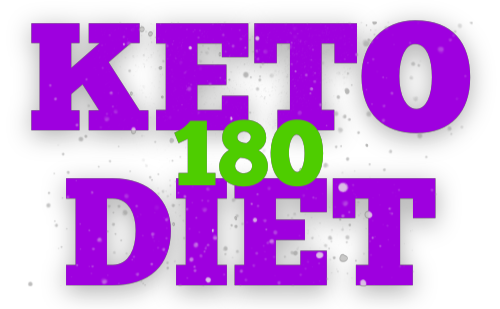In today’s fast-paced world, personal credit can act as a lifeline for individuals seeking financial flexibility. However, navigating the landscape of banks offering personal loans can be daunting. Key players like U.S. Bank, TD Bank, and Citibank stand out for their tailored loan options, each presenting unique benefits and requirements that cater to diverse financial needs.
Not all banks have the same criteria for personal loan approval. While some institutions may require proof of income, others offer more lenient terms for applicants. Understanding these differences is crucial as prospective borrowers search for solutions that align with their financial situation, especially if they lack a checking account or traditional banking history.
Time-sensitive financial needs make the speed of loan approval a significant factor. Many banks, including some from our comparison, boast swift approval processes. This article explores which banks are best suited for various personal circumstances, focusing on ease of application, eligibility requirements, and the diverse loan products they offer.
Navigating Personal Loan Options: A Closer Look at Leading Banks
U.S. Bank, TD Bank, and Citibank each provide unique personal loan options tailored to a variety of financial needs. U.S. Bank offers loans with competitive rates and flexible terms, often without an origination fee. TD Bank is known for its personalized customer service and the convenience of in-branch support, catering to those who prefer face-to-face interactions.
Citibank, on the other hand, emphasizes flexibility with loan amounts and repayment terms, making it an ideal choice for borrowers seeking customization. They offer loans that can be adjusted to better fit individual financial situations. Each bank’s loan offerings are designed to meet diverse borrower needs, providing solutions ranging from debt consolidation to unexpected expenses.
When selecting a bank, potential borrowers should consider the specific benefits and terms of each institution. Factors such as loan amounts, interest rates, and repayment terms can vary significantly. Evaluating these offerings thoroughly will help ensure that borrowers choose the most suitable option for their financial context and future goals.
Proof of Income Requirements: A Varying Criterion
The necessity of proof of income varies across banks, impacting loan approval. While some banks like Citibank may offer lenient proof-of-income criteria, U.S. Bank tends to scrutinize income sources more closely. Prospective borrowers without traditional income documentation may find it challenging to secure a loan with stricter banks.
Conversely, TD Bank often provides more flexible options, recognizing diverse income streams including gig economy earnings and irregular employment. This flexibility allows a broader range of individuals to access personal loans. Understanding each bank’s requirements ensures applicants choose the right institution that better suits their financial background.
It’s crucial for applicants to review the specific documentation each bank requires. Gathering necessary paperwork in advance can streamline the application process, potentially expediting approval. Communication with loan representatives can clarify uncertainties about income verification, thus improving the chances of a favorable loan decision.
Exploring Loan Options Without a Checking Account
For those without a checking account, securing a personal loan can be challenging, yet some banks offer alternatives. U.S. Bank requires a checking account for loan approval, while Citibank is more accommodating to those without one, potentially offering options through savings accounts or other financial products.
TD Bank provides alternatives for individuals lacking a checking account, focusing on broader financial relationships with the bank. Customers with savings or investment accounts may still qualify for loans by demonstrating a stable financial profile. Understanding these bank-specific criteria is essential for those lacking traditional banking frameworks.
Applicants can improve their chances by exploring non-traditional banking relationships or utilizing co-signers to enhance creditworthiness. Consulting directly with bank representatives can uncover potential pathways to loan approval, ensuring that prospective borrowers find the most appropriate financial solutions for their needs.
Fast-Tracking Loan Approval: Who’s the Quickest?
Speed of loan approval is a crucial factor for many borrowers. U.S. Bank prides itself on swift processing, often providing decisions within a day. TD Bank also offers expedited services, especially for existing customers, ensuring rapid access to funds for urgent financial needs.
Citibank delivers competitive approval times, particularly for those applying online. This convenience and speed cater to tech-savvy customers who value efficiency. While approval times vary, many banks enhance their processes to accommodate urgent borrower needs, understanding the importance of speed in financial matters.
For those with immediate financial demands, researching the bank’s commitment to swift processing and approval is essential. Knowing the typical timelines for each bank can aid in selecting the right institution, ensuring that funds are available when they are most needed.
Comparing Loan Offerings Among U.S. Bank, TD Bank, and Citibank
U.S. Bank, TD Bank, and Citibank each offer distinct loan products addressing various customer requirements. U.S. Bank’s competitive rates, as highlighted in their offerings, attract borrowers seeking cost-effective solutions. TD Bank’s strength lies in its range of term options, appealing to those who prioritize flexibility in repayment.
Citibank’s customization in loan amounts often benefits individuals with unique financial scenarios, providing choices beyond standardized loan packages. Each bank’s distinct features ensure that borrowers can select options most aligned with personal financial goals and repayment capabilities.
When comparing banks, understanding the nuances of each offering leads to informed decisions. Borrowers should consider both immediate needs and long-term repayment abilities to select a bank that provides the most advantageous terms and service level, ensuring optimal financial health.
Conclusion
In evaluating personal loan options, understanding each bank’s unique strengths is crucial. U.S. Bank, TD Bank, and Citibank cater to diverse financial needs with tailored offerings. By understanding loan terms, proof-of-income requirements, and approval speeds, borrowers can select a bank aligning with their financial goals and circumstances.
Selecting the right loan requires careful analysis of each bank’s criteria. Prospective borrowers must weigh factors such as flexibility, ease of application, and additional services. With thorough research, individuals can make informed decisions, ensuring access to financial resources in a manner that supports both immediate needs and future financial stability.


